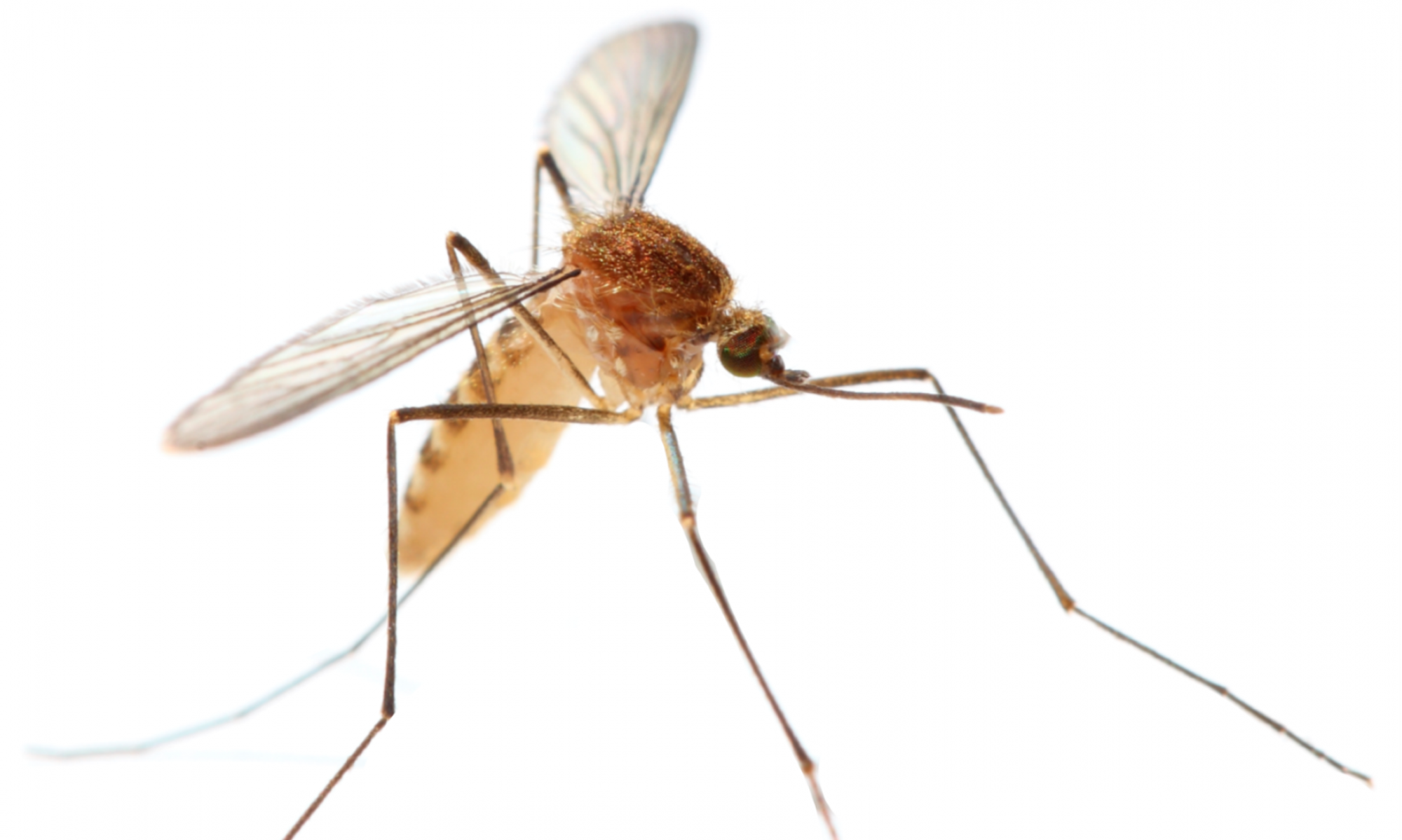We are here to serve you! Included with each area is a link to request services, if available. Please double check that you live within our boundaries (especially if you live in West Valley or Kearns) before submitting a request.
We have several crews during the season monitoring and controlling mosquitoes throughout the District. Maybe you have seen them dipping and treating in the field? Here is a glimpse into what we do to abate those pesky mosquitoes…
Biting Mosquitoes
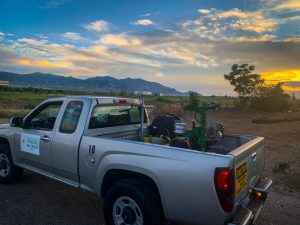
While the main focus of the District is larval control, we do have a program designed to reduce flying mosquito populations if they become too much of a nuisance or if there is a risk to public health. Prior to fogging (also known as ‘adulticiding’) in any particular area, we place a trap to verify the presence of a large adult mosquito population.
In addition to surveillance traps placed weekly, we have a number of traps that can be placed upon request. If it is determined that fogging is needed, we will proceed with fogging an area. We do two different types of fogging – by truck or by handheld sprayers for smaller specific areas like yards. As required by the label, We ALWAYS fog after sunset or before sunrise to avoid non-target insects and large crowds of people.
NO Spray Request
We realize some are very concerned about pesticides around their home. Please click above for more information or to submit a No Spray Request.
Want Fogging Notifications?
Follow us on Facebook! We do not fog a lot, but when we do it will be after dusk and will always posted on our Facebook page. Simply enable notifications to be alerted if we plan to fog.
OR CLICK HERE to go directly to our live Treatment Viewer to see scheduled treatment areas or routes.
Standing Water
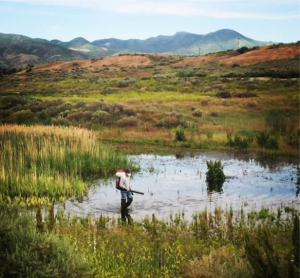
Standing water of any kind has the potential to produce mosquitoes. Most of the major locations around the District with standing water have already been mapped, recorded and are regularly inspected and treated. We do appreciate being notified of new or unknown mosquito sources.
Many sources around the neighborhood can be eliminated through community involvement Click here to learn how you can eliminate standing water around your home and minimize mosquitoes.
Ornamental Ponds
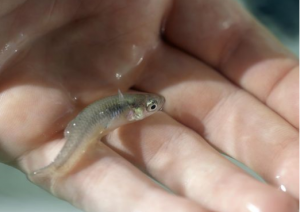
A frequent source of backyard mosquitoes is ornamental ponds. To combat this common source, we have a dedidcated team of technicians to help homeowners enjoy these water features without steady swarms of mosquitoes. In April, registered homeowners receive a letter notifying them when the season will begin and reminding them to prepare their pond(s), inform us of any changes to their pond(s) or if their fish survived the winter. All pond owners will receive at least one of two options for controlling mosquitoes in their ornamental pond(s). Options include:
– Live mosquito fish (Gambusia affinius) that aggressively eat mosquito larvae
– Altosid briquet(s) that prevent mosquito larvae from hatching into adult mosquitoes
Technicians are courteous to give a call first, if requested, to schedule an appointment where pets, locks, or other general access may be a concern. Otherwise, fish or briquets are simply delivered and a notice left on the homeowner’s door noting the completed service. Typically, a check back is completed later in the summer to make sure the fish are thriving or briquets are working properly.
Bird baths and other water features should be emptied or cleaned regularly to minimize mosquitoes in your yard.
Horse Troughs
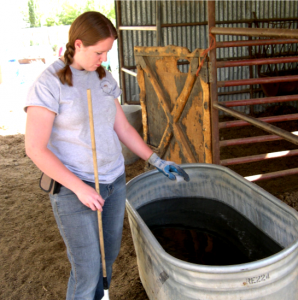
In the heat of the summer, mosquitoes can easily complete their life cycle in under a week making standing water in horse troughs prime mosquito sources. We ask horse owners to be diligent in making sure horse troughs are emptied or cleaned at least once a week. In attempt to help protect horses and minimize mosquitoes we have a dedicated technician who can give advice, information, and/or (at the owners-request) a briquet that can provide mosquito control for up to 150 days. We are aware of the location of most horses in our District and attempt to remind owners about maintenance with annual doorhangers.
Like humans, horses are also susceptible to West Nile virus but have an effective vaccine available. We highly recommend all horse owners have their horses vaccinated for West Nile virus by a licensed veterinarian.
Black Flies
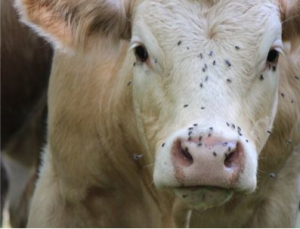
In addition to mosquitoes, the District also controls black flies which can be a nuisance for farmers and ranchers. They bite livestock, especially around eyes, ears and reproductive organs. Like mosquitoes, black fly life begins in water. They however prefer flowing water (whereas mosquitoes need stagnant water) and can be found in canals, ditches, and the Jordan River. They fly erratically and in swarms and are NOT your typical picnic fly.
Tree Holes
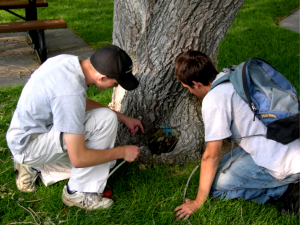
The western tree-hole mosquito (Aedes (Jarnellius) sierrensis) is a common mosquito on the eastern bench areas of the Salt Lake Valley. As its name suggests, this mosquito lays its eggs in wet tree holes typically found in older gnarled trees. Tree-hole mosquitoes are aggressive day biters and can be a real nuisance. They also are the primary vectors of dog heartworm.
Catch Basins

We also have an entire crew dedicated to inspecting every catch basin (also commonly known as storm drains) throughout the District multiple times during the summer and treating as necessary. Urban mosquitoes that can carry West Nile virus thrive in catch basins.
Keep an eye out for these bike crews in bright orange protecting your neighborhood. By keeping catch basins and gutters near your home free of debris you can minimize standing water on your street.
